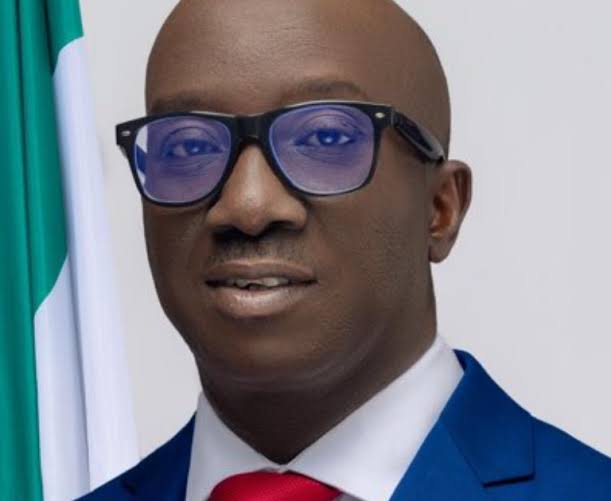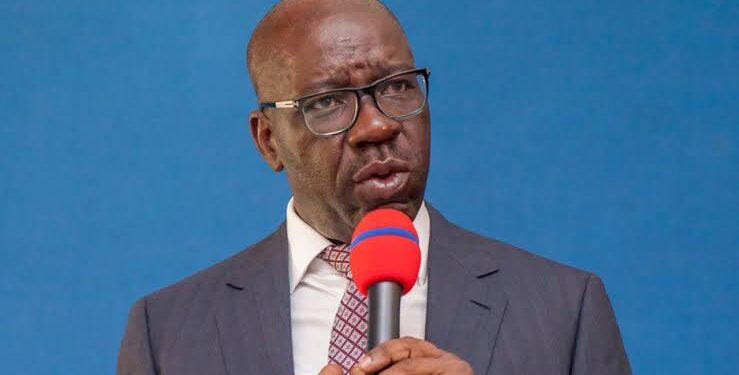Edo State’s new governor, Monday Okpebholo, seems determined to make one thing clear, his administration is all about erasing the legacy of his predecessor, Godwin Obaseki. Okpebholo has abolished the controversial traditional councils created by Obaseki in Edo South senatorial district.
What They Are Saying
“This administration also hereby abolishes the new traditional councils in Edo South, created by the last administration,” Fred Itua, Chief Press Secretary to the Governor, announced in a statement on Sunday.
Let’s not pretend this decision was purely administrative. Many believe it’s part of a larger effort to mend fences with the Oba of Benin, whose displeasure with Obaseki’s policies was no secret.
“Offending the Oba of Benin is like a death sentence,” a sentiment that seems to have guided much of Okpebholo’s recent actions.

Not only has Okpebholo reversed Obaseki’s traditional council reforms, but he’s also restored the statutory financial entitlements of the Benin Traditional Council (BTC) and reinstated the pre-existing status quo. In other words, the Oba of Benin is back in full control, and the new governor is making it crystal clear where his loyalties lie.
But the cleanup operation didn’t stop there. Okpebholo has also withdrawn the letter revoking the concession of the Oba Akenzua II Cultural Centre, a move by the previous administration that sparked outrage in Benin City. The centre, we’re told, will now be restored to its original purpose.
Okpebholo is fully backing the Federal Government’s recognition of the Oba of Benin as the exclusive owner of ancient artefacts looted during the 1897 Benin massacre. The statement emphasized that the governor would have no part in Obaseki’s controversial Museum of West African Art (MOWAA) project, which many in the state saw as sidelining the Oba’s authority.
“The Oba of Benin, as the father of all Benin people, is the sole custodian of the customs and traditions of the Benin people, and my administration respects customs and traditions in the land,” the statement read. Okpebholo further pledged to refrain from meddling in the internal affairs of the Benin Traditional Council—a sharp contrast to Obaseki’s approach, which critics often described as high-handed.
Why it Matters
All this noise about tradition and artefacts is beginning to feel like a convenient distraction. What about the Edo people? Where are the policies that address their daily struggles jobs, infrastructure, healthcare, and education? So far, Okpebholo’s administration seems more interested in undoing Obaseki’s legacy than creating one of its own.
Sure, Obaseki wasn’t perfect. His policies offended many, not least the revered Oba of Benin, and this undoubtedly contributed to his party’s political downfall. But at least he had policies whether you liked them or not. Okpebholo, on the other hand, appears to be running a government of reversals, with little to show in terms of tangible achievements for ordinary Edo citizens.
Bottom Line
How long can this “undo-Obaseki” strategy sustain him? Edo people deserve more than a governor who seems obsessed with erasing his predecessor’s name from the state’s history books. It’s time for Okpebholo to step up and show that he has a vision for Edo State that goes beyond placating the Oba and dismantling Obaseki’s reforms.
















